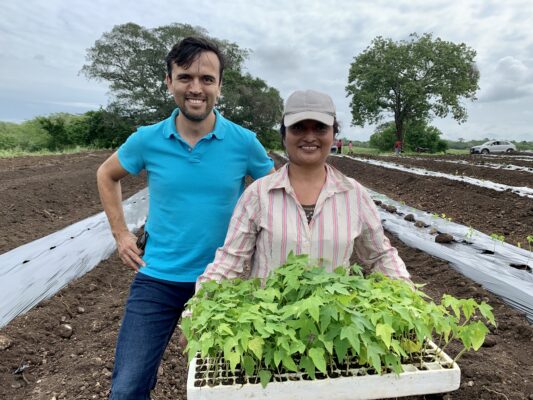Last week, on November 14, President Trump announced that certain agricultural products should not be subject to a reciprocal tariff. Bananas, oranges, and tropical fruits are examples of some of the more than 200 agricultural products that are now exempt. “This is definitely some positive news for everyone in the supply chain, from growers to distributors and consumers,” says Andrés Ocampo of HLB Specialties, importer of tropical and exotic fruits.
Whether a product is exempt or not depends on the status of negotiations between the U.S. and various trading partners, but also on the current domestic demand for certain products, as well as on the U.S. domestic capacity to produce certain products.
Positive impact on demand
The tropical fruits HLB Specialties brings in are either grown domestically in very limited quantities or not grown in the U.S. at all, which has likely driven the decision to remove the tariffs on these items. “The timing is great as demand for tropical fruits tends to be lower in winter,” commented Ocampo. Removal of tariffs will result in prices at consumer level coming down, which will likely have a positive effect on volumes sold. It may even provide an opportunity to do promotions.
Items that are currently in season for HLB and enjoying a tariff removal are rambutan from Central America, dragon fruit from Ecuador, coconuts from Asia and Central America as well as lychees from South Africa. “These exotic and tropical fruits are non-essential items and there is a direct correlation between the retail price and the demand,” Ocampo said. “When they are affordable, demand immediately goes up.”
Tariffs Brazil
While many tropical items will benefit from the decision, there continues to be concern around tropical fruits imported from Brazil. HLB brings in papayas from Brazil, making up a significant portion of the company’s total papaya import business. “This item continues to be subject to a relatively steep tariff,” mentioned Ocampo. While for most countries a 10 percent tariff became effective earlier this year, Brazil got slapped with an additional 40 percent duty back in July. During last week’s announcement, it became clear that out of the total 50 percent Brazil is subject to, only 10 percent has been removed. This means papayas from Brazil remain subject to a 40 percent U.S. tariff for now, but trade discussions between the two countries continue.
Source: FreshPlaza, https://www.freshplaza.com/north-america/article/9786544/removal-of-tariffs-on-tropical-fruits-is-a-relief-but-not-for-brazil/?utm_medium=email

